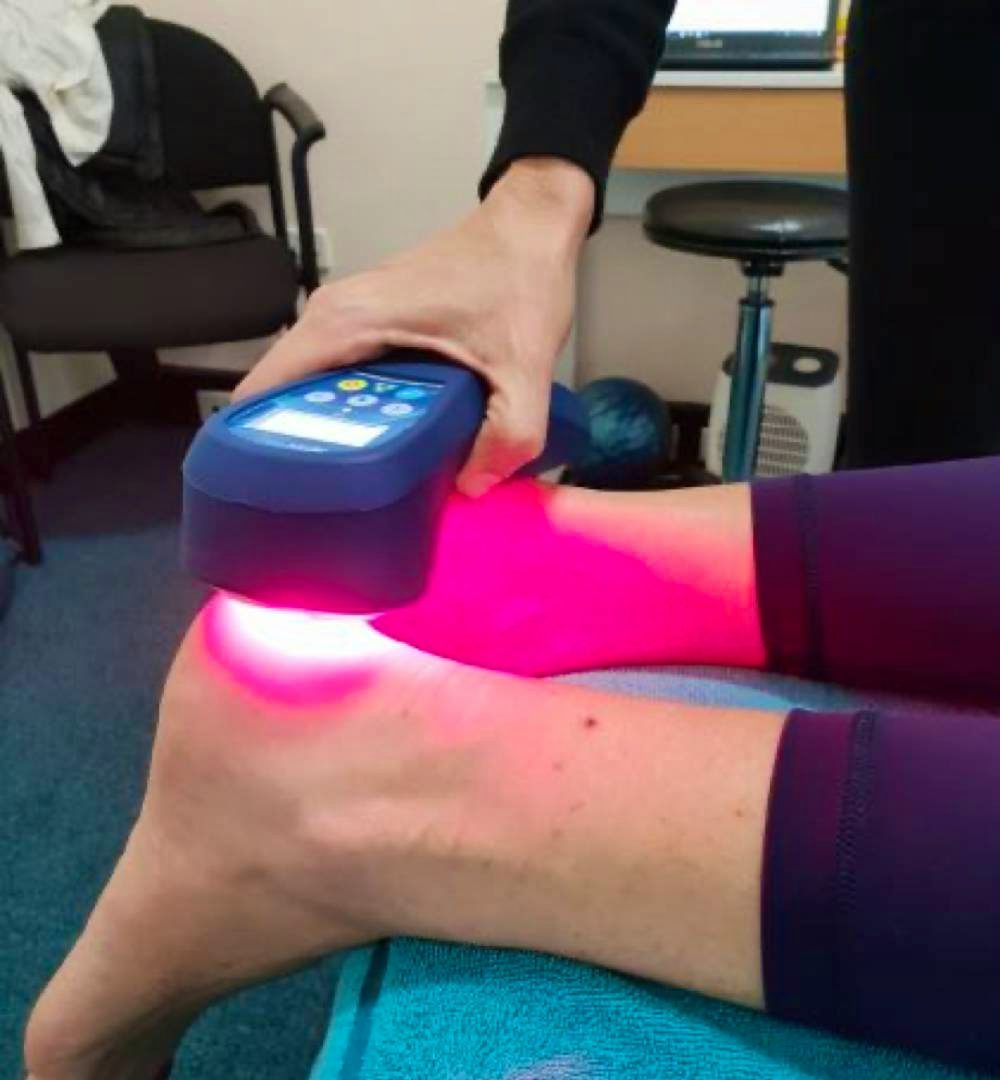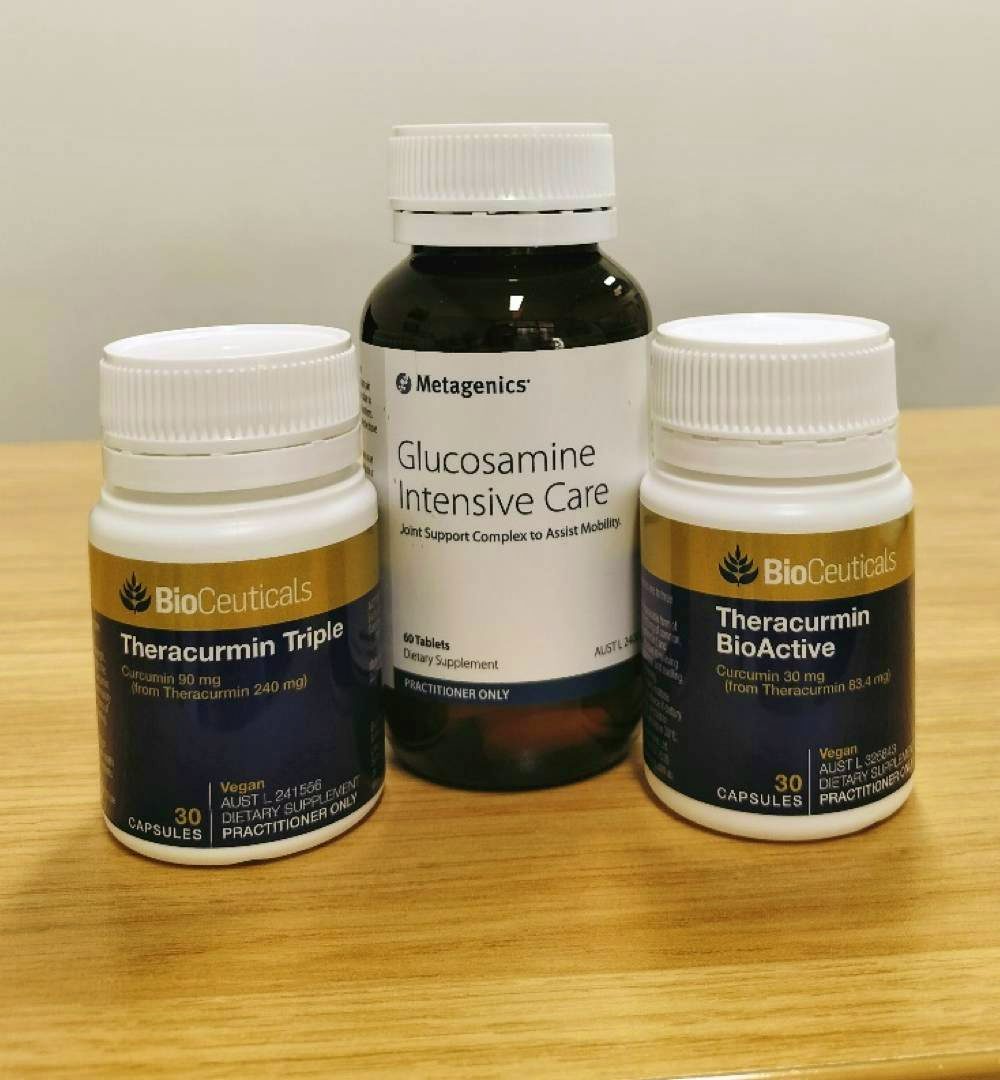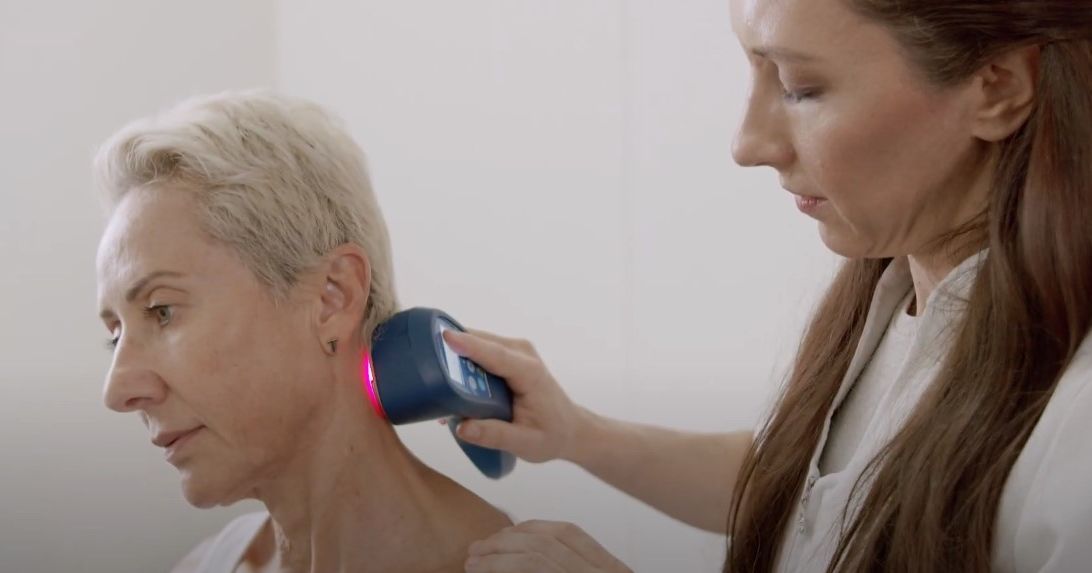
The Link Between Diet and Joint Pain- Low level Laser
Emerging studies have linked a high-fat diet and obesity to increased inflammation and altered biomechanics of the joints which may cause destruction of joints and ultimately lead to pain.
Altered Biomechanics
Obesity is the most influential and modifiable risk factor which contributes to osteoarthritis – a degenerative joint disease prevalent in those aged 50+. [1] Individuals with a BMI classed as obese have increased mechanical loading through weight bearing joints in the lower limbs which may lead to wearing down of the cartilage in the joints, causing pain. For every extra 1kg of body weight, there is an extra 6kg of load through each of the knees! [2] Because of the excess and uneven mechanical loading through joints, non-weight joints may also become affected.
Osteoarthritis is a leading cause of disability in Australia and may be prevented by adopting a healthy diet low in processed fats and sugars.

Diet Causing Inflammation
There is compelling research which demonstrates that high fat diets can illicit inflammatory immune responses in the body, including joints. Adipose (fat) tissue releases inflammatory signals (cytokines) which can reach joints through the vascular system. At high concentrations, these inflammatory signaling molecules may cause degeneration of cartilage leading to pain. This occurs more often in people with a greater proportion of abdominal fat even if within a normal BMI range, therefore measuring waist circumference is important. [2]
Foods to Avoid
Below is a list of foods which have found to contribute to inflammatory processes within the body:
- Processed meats such as sausages and cold cut meats such as ham and salami
- Trans fats which can be found in deep fried foods, fast food and commercially baked goods
- Refined sugars found in soft drinks, cookies, lollies, cake, ice cream and some breakfast cereals
- Processed snack foods such as chips and crackers
- Refined carbohydrates and gluten found in white bread, pasta and pastries
- Corn oils
- Alcohol in excessive quantities.
Be sure to check packaging for any of the above ingredients./p>
Anti-Inflammatory Foods
Just as there are foods that can cause inflammatory responses in the body, there are foods which have anti-inflammatory properties which work by blocking the action of substances which induce inflammation. Anti-inflammatory compounds include:
- Omega 3 fatty acids: found in oily fish such as salmon, trout, tuna, sardines and cod
- Olive oil
- Green leafy vegetables such as spinach, kale and collards
- Nuts such as almonds and walnuts
- Fruits such as strawberries, blueberries, cherries and oranges.
These foods are high in natural antioxidants and polyphenols which are believed to have anti-inflammatory properties.
Dietary Supplements
Glucosamine is a mineral supplement which helps reduce mild joint inflammation, support joint mobility and may ease mild pain associated with mild osteoarthritis. While more studies are to be conducted, there is evidence emerging that glucosamine may also be effective in reducing the progression of osteoarthritis. [3]
Theracurmin is a bioavailable form of curcumin, a supplement which has been shown to demonstrate antioxidant and anti-inflammatory properties. It may aid in relieving the symptoms of osteoarthritis and is an alternative to NSAIDs in patients who are intolerant to the side effects or have been using NSAIDs for an extended period of time. It is important to consult your GP before taking any supplements if you have any existing medical conditions or taking any medications.

At Lakeside Laser, we prioritise our patients’ overall health and wellbeing with personalised care every step of the way. Our clinic offers healthcare rebates through most major health funds, with HICAPS available onsite for easy claiming.
If you have any questions, call us on 0468 429 111 or book an appointment via our website at www.lakesidelaser.com.au.
References
1. Wang T, He C. Pro-inflammatory cytokines: The link between obesity and osteoarthritis. Cytokine Growth Factor Rev. 2018 Dec;44:38-50. doi: 10.1016/j.cytogfr.2018.10.002. Epub 2018 Oct 11. PMID: 30340925.
2. Duclos M. Osteoarthritis, obesity and type 2 diabetes: The weight of waist circumference. Ann Phys Rehabil Med. 2016 Jun;59(3):157-160. doi: 10.1016/j.rehab.2016.04.002. Epub 2016 May 19. PMID: 27211819.
1. 3. Messina OD, Vidal Wilman M, Vidal Neira LF. Nutrition, osteoarthritis and cartilage metabolism. Aging Clin Exp Res. 2019 Jun;31(6):807-813. doi: 10.1007/s40520-019-01191-w. Epub 2019 Apr 13. PMID: 30982220.



